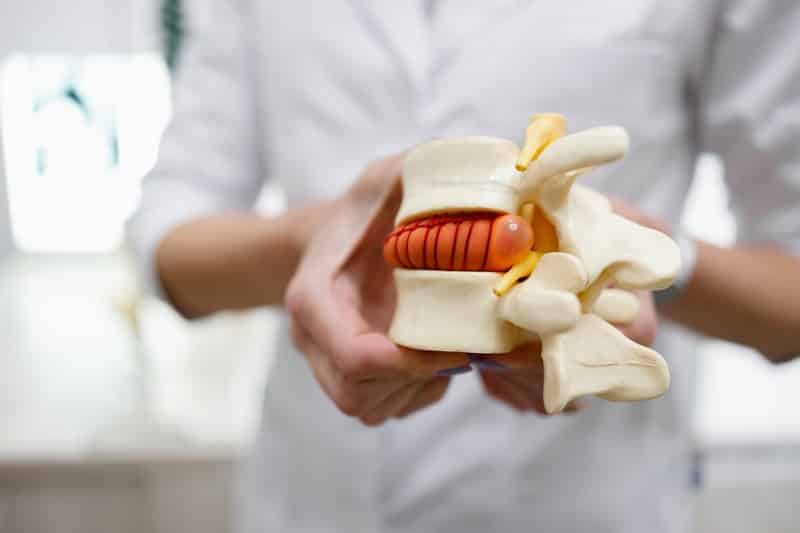Herniated Disk

The vertebrae in the spine are made of strong bones, but soft cushions separate them. They facilitate the movements of the spine, such as bending and flexing of the spine. The discs in the spine cushion the space between the 26 vertebrae that make up the spine. Discs of jellylike material function as shock absorbers. When the soft center of a disc pushes through the more rigid outer layers of the spinal column, the result is a herniated or slipped disc. As a result, the spinal column or surrounding nerves might be compressed. It may cause pain and discomfort in the back, neck, and surrounding body parts.
If a disk has herniated in your neck, you’ll probably feel discomfort in your shoulder and upper arm. Depending on the disk’s location, the upper arm pain ranges from mild discomfort to severe nerve pain. When you move into certain postures, coughing, sneezing, or even standing up can exacerbate this discomfort. The pain typically radiates numbness or tingling from the neck to the shoulders and upper arms that the damaged nerves supply when a person has a herniated disk. This condition can also weaken the muscles of the arm, which can cause them to lose the capacity to grip or lift objects.










